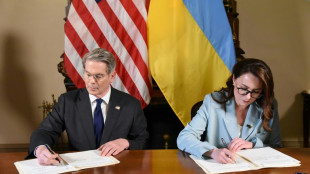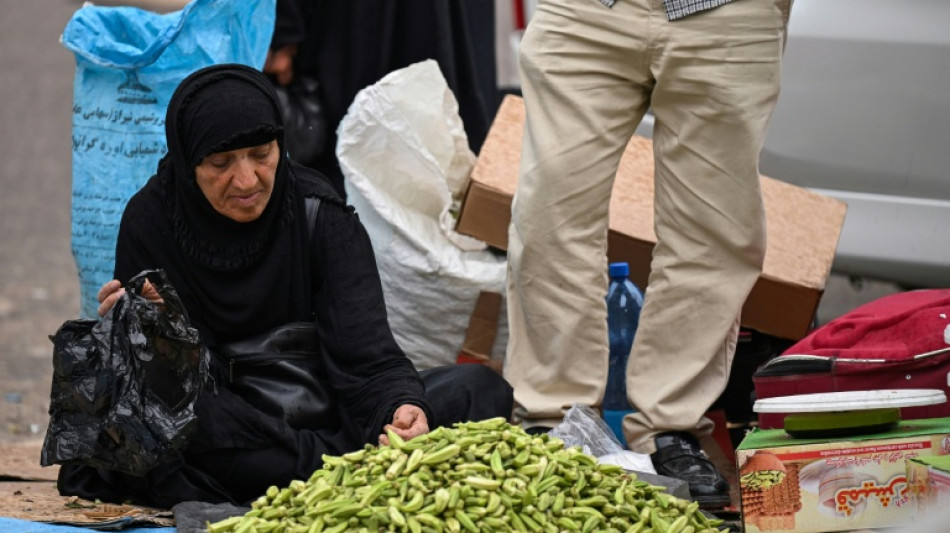
-
 'Boss Baby' Suryavanshi falls to second-ball duck in IPL
'Boss Baby' Suryavanshi falls to second-ball duck in IPL
-
Shibutani siblings return to ice dance after seven years

-
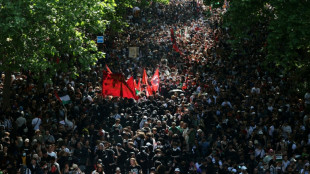 300,000 rally across France for May 1, union says
300,000 rally across France for May 1, union says
-
US-Ukraine minerals deal: what we know
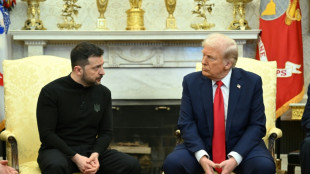
-
 Top Trump official ousted after chat group scandal: reports
Top Trump official ousted after chat group scandal: reports
-
Schueller hat-trick sends Bayern women to first double

-
 Baudin in yellow on Tour de Romandie as Fortunato takes 2nd stage
Baudin in yellow on Tour de Romandie as Fortunato takes 2nd stage
-
UK records hottest ever May Day
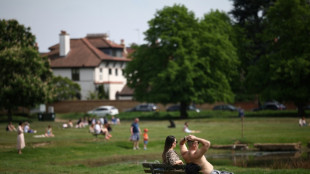
-
 GM cuts 2025 outlook, projects up to $5 bn hit from tariffs
GM cuts 2025 outlook, projects up to $5 bn hit from tariffs
-
Thousands of UK children write to WWII veterans ahead of VE Day
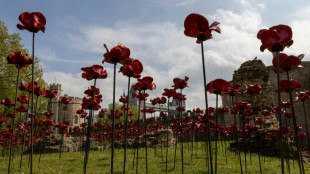
-
 Top Trump official exiting after chat group scandal: reports
Top Trump official exiting after chat group scandal: reports
-
Madrid Open holder Swiatek thrashed by Gauff in semis
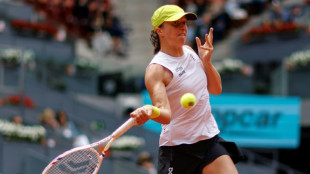
-
 Sheinbaum says agreed with Trump to 'improve' US-Mexico trade balance
Sheinbaum says agreed with Trump to 'improve' US-Mexico trade balance
-
US veteran convicted of quadruple murder to be executed in Florida

-
 UK counter terrorism police probe Irish rappers Kneecap
UK counter terrorism police probe Irish rappers Kneecap
-
S. Korea crisis deepens with election frontrunner retrial, resignations

-
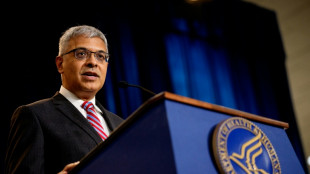 Trump administration releases report critical of youth gender care
Trump administration releases report critical of youth gender care
-
IKEA opens new London city centre store

-
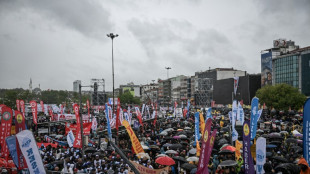 Police deploy in force for May Day in Istanbul, arrest hundreds
Police deploy in force for May Day in Istanbul, arrest hundreds
-
Syria Druze leader condemns 'genocidal campaign' against community
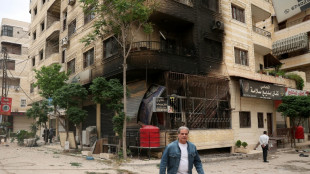
-
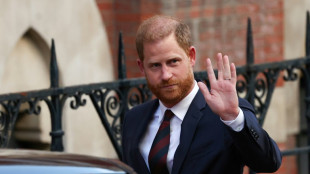 Prince Harry to hear outcome of UK security appeal on Friday
Prince Harry to hear outcome of UK security appeal on Friday
-
Microsoft raises Xbox prices globally, following Sony

-
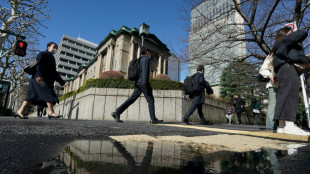 US stocks rise on Meta, Microsoft ahead of key labor data
US stocks rise on Meta, Microsoft ahead of key labor data
-
Toulouse injuries mount as Ramos doubtful for Champions Cup semi

-
 Guardiola glad of Rodri return but uncertain if he'll play in FA Cup final
Guardiola glad of Rodri return but uncertain if he'll play in FA Cup final
-
Ruud sails past Medvedev into Madrid Open semis

-
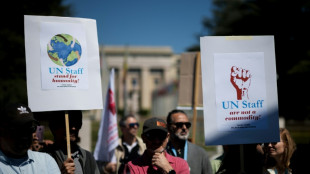 'Not a commodity': UN staff rally over deep cuts
'Not a commodity': UN staff rally over deep cuts
-
Flintoff proud as Afghan refugee protege plays for Lancashire second team

-
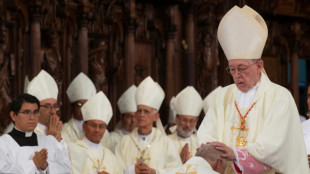 Peruvian cardinal accused of abuse challenges late pope's sanction
Peruvian cardinal accused of abuse challenges late pope's sanction
-
Trans women barred from women's football by English, Scottish FAs
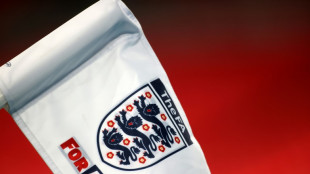
-
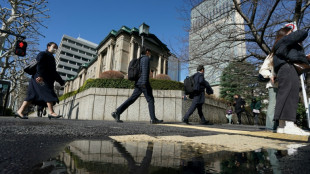 Oil prices drop, stocks diverge amid economic growth fears
Oil prices drop, stocks diverge amid economic growth fears
-
Israel brings fire near Jerusalem 'under control', reopens roads
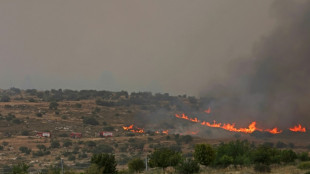
-
 Lopetegui appointed coach of Qatar
Lopetegui appointed coach of Qatar
-
UK counter-terrorism unit probes rappers Kneecap but music stars back band

-
 Yamal heroics preserve Barca Champions League final dream
Yamal heroics preserve Barca Champions League final dream
-
2026 T20 World Cup 'biggest women's cricket event in England' - ECB
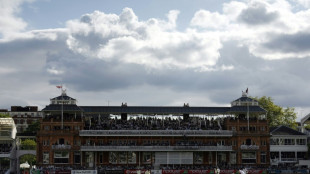
-
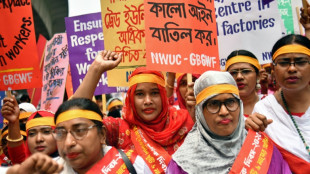 Bangladesh begins three days of mass political rallies
Bangladesh begins three days of mass political rallies
-
Children learn emergency drills as Kashmir tensions rise
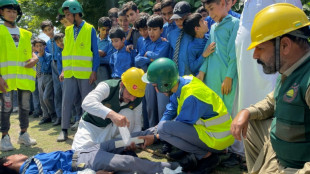
-
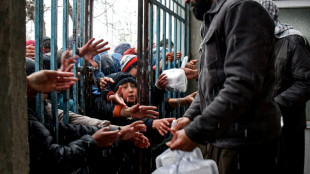 Millions of children to suffer from Trump aid cuts
Millions of children to suffer from Trump aid cuts
-
Veteran Wallaby Beale set for long-awaited injury return
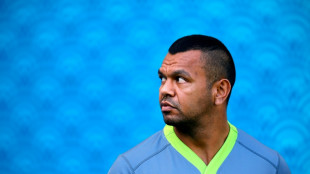
-
 Syria's Druze take up arms to defend their town against Islamists
Syria's Druze take up arms to defend their town against Islamists
-
Tesla sales plunge further in France, down 59% in April

-
 US calls on India and Pakistan to 'de-escalate'
US calls on India and Pakistan to 'de-escalate'
-
Israel reopens key roads as firefighters battle blaze

-
 Europe far-right surge masks divisions
Europe far-right surge masks divisions
-
James will mull NBA future after Lakers playoff exit

-
 Ukraine's chief rabbi sings plea to Trump to side with Kyiv
Ukraine's chief rabbi sings plea to Trump to side with Kyiv
-
Australian mushroom meal victim 'hunched' in pain, court hears

-
 Lakers dumped out of playoffs by Wolves, Rockets rout Warriors
Lakers dumped out of playoffs by Wolves, Rockets rout Warriors
-
Booming tourism and climate change threaten Albania's coast


Iraqi markets a haven for pedlars escaping Iran's economic woes
Every Friday, Alawi crosses the border from Iran into Iraq to sell his produce in the markets of Basra, which serve as a haven for Iranians grappling with economic sanctions.
He is just one of many Iranian pedlars who endure the arduous journey into southern Iraq through the Chalamja border crossing.
They bring essential goods such as chicken, eggs, cooking oil and household items to sell at low prices, hoping for a profit that would be unimaginable back home due to sharp currency depreciation and soaring inflation.
"The situation is difficult due to the embargo," Alawi said, referring to Western sanctions against Iran.
Asking to withhold his surname for fear of repercussions back home, the 36-year-old said he had not given up easily on his country, and had tried to sell his produce in a market there.
"There were no customers, and the products would spoil, so we had to throw them away and end up losing" money, he told AFP.
Instead, for the past seven years, he has been travelling to Iraq where he sells okra in summer and dates in winter, earning between $30 and $50 a day –- much more than he could make at home.
"When we exchange Iraqi money" for Iranian rials, "it's a lot," the father of two said.
"We can spend it in five days or even a week," he added.
- 'A lifeline' -
After a brief period of relief from sanctions in exchange for curbs on Iran's nuclear programme, US President Donald Trump reimposed the biting measures during his first term in 2018.
Ever since, the value of the Iranian rial has plunged, fuelling high inflation and unemployment.
Prices soared last month by more than 32 percent compared to March the previous year, according to official figures.
Trump announced this week that his administration would restart negotiations with Iran over its nuclear programme, with talks to take place in Oman on Saturday.
Iranian Foreign Minister Abbas Araghchi has said his country's chief aim is for US sanctions to be lifted.
In the meantime, Basra's markets continue to bustle with Iranian vendors.
At the Friday market, bags of rice were stacked on plastic crates next to bottles of detergent.
While some vendors chatted with customers, others dozed off beside their shopping bags, rubbing off the weariness of a long journey.
Hayder al-Shakeri of the London-based Chatham House think-tank's Middle East and North Africa programme said informal cross-border trade "has expanded significantly over the past decade as sanctions on Iran have increasingly impacted everyday life."
Basra's proximity to Iran's Khuzestan province, where many residents speak Arabic and share cultural values with Iraq, makes it a primary target for mostly working-class Iranian vendors, Shakeri said.
Among them are women and elderly men whose livelihoods have been severely impacted by inflation, he said, calling the cross-border trade "a vital lifeline".
"Earning in more stable currencies like the Iraqi dinar or even US dollars provides a financial buffer" against the devaluated rial, he added.
- Better and cheaper -
Iran wields considerable political influence in Iraq and is a major trade partner for the country, the second-largest importer of non-oil Iranian goods.
Trade between the two countries amounts to tens of billions of dollars.
Milad, 17, and his mother have been selling household essentials in Basra for the past two years. Fearing a worsening situation back home, they recently rented a small shop.
In Iran, "finding work is hard, and the currency is weak," said curly-haired Milad, who declined to give his last name, adding that his cousin has been looking for a job since he graduated.
Iraqi maths professor Abu Ahmad, 55, strolls to the market every Friday, looking for fresh Iranian goods.
"Their geymar is better than ours," he said, referring to the cream Iraqis have with honey for breakfast.
It is also cheaper.
"They sell it for 12,000 dinars ($8)" compared to an Iraqi price of 16,000, he added.
Shakeri from Chatham House warned that local vendors "resent the competition", and Iraqi security forces sometimes remove Iranians, though they know they will eventually return.
Umm Mansur, a 47-year-old Iranian mother of five, has had a bitter experience since she joined other pedlars six months ago.
At the border, "they insult and mistreat us," she said.
Other pedlars have described similar experiences, saying they were held up for hours at the crossing.
Umm Mansur said she is willing to overlook the mistreatment to earn four times what she would at home.
"In Iran, there is no way to make a living," she said.
T.Zimmermann--VB

